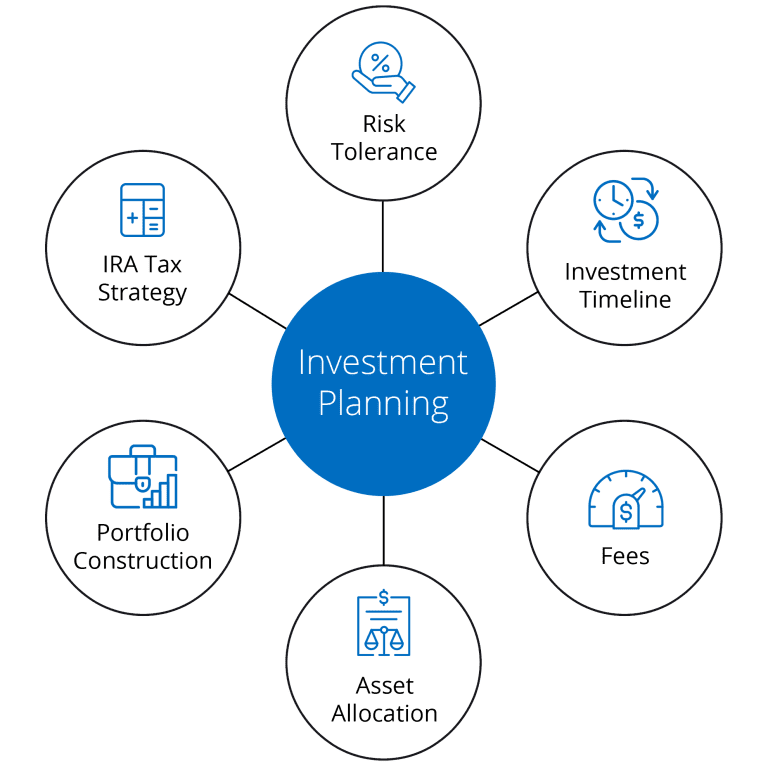Investment Planning
Solutions To Maximize Your Income
Build a Strong Financial Future with a professional investment planner
Retirement is a time in life that many people look forward to. After decades of working hard, you finally get to enjoy the fruits of your labor and pursue your passions. However, in order to enjoy your retirement to the fullest, it’s important to have a solid investment plan in place. This can help ensure that you have enough money to support yourself and your loved ones throughout your golden years. The investment planners at Nature Coast Capital will help you explore the ins and outs of investment planning for retirement, including retirement plans, investment strategies, asset management, and more.
Choosing the Right Investment Plan for Your Needs
One of the first steps in investment planning for retirement is choosing the right retirement plan. There are several options to choose from, including 401(k) plans, individual retirement accounts (IRAs), and Roth IRAs. Each plan has its own set of rules and requirements, so it’s important to do your research and choose the plan that best fits your needs.
A 401(k) plan is an employer-sponsored investment plan that allows you to contribute a portion of your pre-tax income to the plan. Many employers also offer matching contributions, which can help boost your savings even further. One advantage of a 401(k) plan is that your contributions are deducted from your income before taxes are taken out, which can help reduce your taxable income.
IRAs and Roth IRAs, on the other hand, are individual retirement accounts that you can open on your own. Traditional IRAs allow you to contribute pre-tax dollars, while Roth IRAs use after-tax dollars. Both types of accounts offer tax advantages, but the rules for withdrawals and contributions vary between the two. Regardless of which investment plan you choose, it’s important to contribute as much as you can afford to. The more you save now, the more you’ll have in retirement.


Asset Allocation: Finding the Right Mix
Another key aspect of investment planning is asset allocation. This refers to the process of dividing your portfolio among different asset classes to minimize risk and maximize returns. The right asset allocation mix will depend on your risk tolerance, financial goals, and time horizon.
Generally speaking, younger investors with a longer time horizon can afford to take on more risk, since they have more time to recover from any losses. Older investors, on the other hand, may want to focus on more conservative investments that offer stability and income.
Mutual Funds and Index Funds
Mutual funds and index funds are popular investment vehicles for retirement planning. Mutual funds are professionally managed portfolios of stocks, bonds, or other securities. They offer diversification and the opportunity for higher returns, but they also come with management fees and other expenses. Index funds, on the other hand, are designed to track a particular market index, such as the S&P 500. They are passively managed and typically have lower fees than actively managed mutual funds. While they may not offer the same potential for high returns as some mutual funds, they can be a good option for investors who want to minimize expenses and simplify their investment strategy.
Investment planning for retirement is a complex process that requires careful consideration of your financial goals, risk tolerance, and time horizon. By choosing the right retirement plan, developing a solid investment strategy, and staying disciplined over the long-term, you can help ensure that you have the financial resources you need to enjoy a comfortable retirement. Whether you prefer mutual funds, index funds, or other investment vehicles, the key is to stay focused on your long-term goals and to make smart investment decisions along the way.

Frequently Asked Questions
About Investment Planning
A retirement investment account is a type of account that is designed specifically for retirement savings. Some examples of retirement investment accounts include 401(k) plans, traditional IRAs, and Roth IRAs.
An investment strategy is a plan for investing your money in a way that aligns with your financial goals and risk tolerance. A sound investment strategy will typically include a diversified portfolio of investments across different asset classes and investment vehicles.
Asset management refers to the professional management of assets, such as stocks, bonds, and other securities. Asset managers are responsible for making investment decisions on behalf of their clients, with the goal of maximizing returns while minimizing risk.
Nature Coast Capital is an independent financial advisory firm and fiduciary. As fiduciaries, we have a legal and moral obligation to put your financial interests and needs first. Our team works together to provide you with strategies and solutions that combine all facets of your retirement life. Moreover, we believe in educating our clients, which is why we post a blog article to our website each week and offer complimentary educational guides on a variety of financial topics. You can stay up to date with financial news and gain access to our newest blog and guides by clicking here to sign up to receive our weekly newsletter.
It’s easy! Please give us a call at 000 000 0000 or request an appointment by clicking here. We will then reach out to you to schedule a time to set up an introductory meeting. This introductory meeting will review your current financial plan and goals. This meeting can be held over the phone or in-person at one our office locations.
Asset allocation refers to the process of dividing your investment portfolio among different asset classes, such as stocks, bonds, and real estate. The goal of asset allocation is to create a diversified portfolio that balances risk and return.
An investment portfolio is a collection of investments, such as stocks, bonds, and mutual funds, that an individual or organization owns. The composition of an investment portfolio will depend on the investor’s financial goals, risk tolerance, and time horizon.
Ready For The Next Step?
Start Your Investment Planning Discussion!

